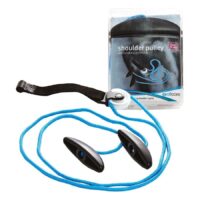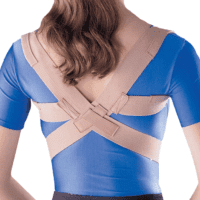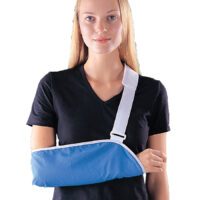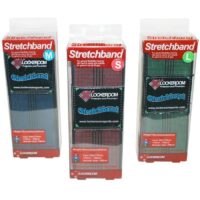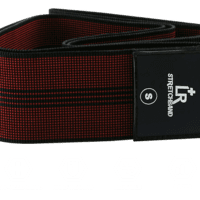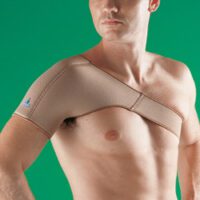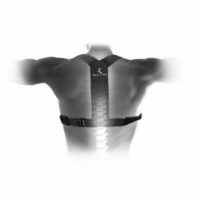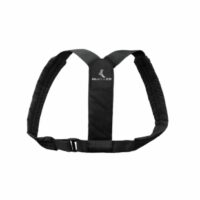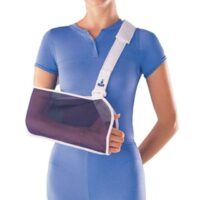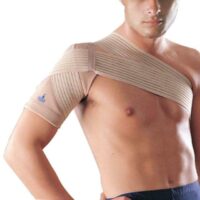Rotator Cuff Injury
Article by John Miller
Rotator Cuff Injury
The Nature of Rotator Cuff Injuries
Why are rotator cuff injuries significant? They can range from mild tendinopathy and shoulder bursitis to severe tears needing surgery. These injuries compromise the shoulder’s muscles and tendons, leading to issues like rotator cuff impingement.
Read more: What is Rotator Cuff Impingement?

What is the Rotator Cuff?
How does the rotator cuff function? It stabilises and controls the shoulder joint with four muscles: subscapularis, supraspinatus, infraspinatus, and teres minor. These muscles wrap around the shoulder joint, enabling rotation and control.
Read more: Shoulder Anatomy Explained
Causes of Rotator Cuff Injury
Why do rotator cuff injuries occur? They can stem from:
- Overuse: Repetitive overhead motions or heavy lifting
- Trauma: Falls or direct impacts
- Degeneration: Age-related tendon weakening
- Poor Posture: Misaligned shoulder blades due to bad posture
- Muscle Weakness and Flexibility Issues: Lack of strength and flexibility
- Structural Anomalies: Bone spurs or acromion curvature
Recognising Rotator Cuff Injury Symptoms
What symptoms indicate a rotator cuff injury? Look for:
- Shoulder pain extending to the elbow
- Discomfort when lying on the affected shoulder
- Persistent pain
- Muscle weakness
- Pain during activities like reaching or fastening a seatbelt
Diagnosis of Rotator Cuff Injuries
How are these injuries diagnosed? Physiotherapists or sports doctors use clinical history and tests. Ultrasound scans are highly accurate, while MRIs might miss some injuries. It’s crucial to rule out conditions like adhesive capsulitis.
Treating Rotator Cuff Injuries: A Physiotherapist’s Perspective
What are the treatment stages for rotator cuff injuries?
- Early Injury Protection: Minimise further damage.
- Pain Relief and Anti-Inflammatory Measures: Manage pain and inflammation.
- Regaining Full Range of Motion: Essential for recovery.
- Restoring Scapular Control: Ensure proper shoulder blade movement.
- Restoring Overall Shoulder Function: Includes the neck, scapula, thorax, and shoulder.
- Strengthening the Rotator Cuff: Crucial for long-term health and prevention.
- Restoring Speed, Power, Proprioception, and Agility: Prepares for a return to activities.
Read more: Comprehensive Rotator Cuff Rehabilitation
Conclusion: The Importance of Professional Care
Why is professional care crucial? Rotator cuff injuries require professional assessment and management form your physiotherapist or doctor. A physiotherapist’s guidance is invaluable in treating and preventing future injuries. Timely intervention and tailored rehabilitation are key to successful recovery.
What to Do?
If you experience shoulder pain or discomfort, seek professional advice from your physiotherapist or doctor. Early diagnosis and treatment can significantly impact your recovery journey.
Rochedale - Call 38410277
Book Online: RochedaleSalisbury - Call 32751044
Book Online: SalisburySandgate - Call 32691122
Book Online: SandgateRotator Cuff Injury FAQs
1. What is a rotator cuff injury?
A rotator cuff injury affects the group of muscles and tendons stabilising the shoulder. These injuries can vary from mild strains to severe tears. Common symptoms include shoulder pain, weakness, and limited mobility.
Read more: What is your Rotator Cuff?
2. How can I prevent rotator cuff injuries?
Prevention includes regular shoulder strengthening exercises, maintaining good posture, and avoiding repetitive overhead activities. Proper warm-ups and stretches before physical activities also help.
Read more: Preventing Rotator Cuff Injuries
3. What are the common treatments for rotator cuff injuries?
Treatment often involves physiotherapy, anti-inflammatory medications, and in severe cases, surgery. Rehabilitation exercises are crucial for recovery.
Read more: Treatment Options for Rotator Cuff Injuries
4. How long does it take to recover from a rotator cuff injury?
Recovery time varies depending on the injury’s severity and treatment. Mild injuries might heal in a few weeks, while severe tears requiring surgery could take several months.
5. Can a rotator cuff injury heal without surgery?
Many rotator cuff injuries can heal with physiotherapy and conservative treatments. Surgery is typically considered when non-surgical methods fail to provide relief.
6. What are the risks of not treating a rotator cuff injury?
Untreated injuries can lead to chronic pain, larger rotator cuff tears, decreased shoulder function, and further damage. It’s essential to seek treatment to avoid complications.
Read more: Rotator Cuff Tears
Related Articles
- Shoulder Impingement: Learn about shoulder impingement and how it relates to rotator cuff injuries.
- Rotator Cuff Exercises: Discover effective exercises to strengthen your rotator cuff.
- Preventing Shoulder Injuries: Tips and strategies to prevent shoulder injuries in everyday life.
- Shoulder Pain Causes: Explore various causes of shoulder pain and their treatments.
- Rehabilitation After Shoulder Surgery: Guidance on recovering from shoulder surgery.
- Frozen Shoulder: Information on frozen shoulder, its symptoms, and treatments.
- Shoulder Arthritis: Understanding shoulder arthritis and managing its symptoms.
- Physiotherapy for Shoulder Pain: How physiotherapy can help alleviate shoulder pain.
- Posture and Shoulder Health: The impact of posture on shoulder health and tips for improvement.
- Sports Injuries: Common sports injuries and how to prevent them.
- Rotator Cuff Injury: Causes, Symptoms & Treatment: A comprehensive overview of rotator cuff injuries by WebMD.
- Rotator Cuff Injury Guide: Detailed information on symptoms, causes, and treatments by Healthline.
- Rotator Cuff Injuries: Extensive guide on rotator cuff tears and treatment by OrthoInfo AAOS.














